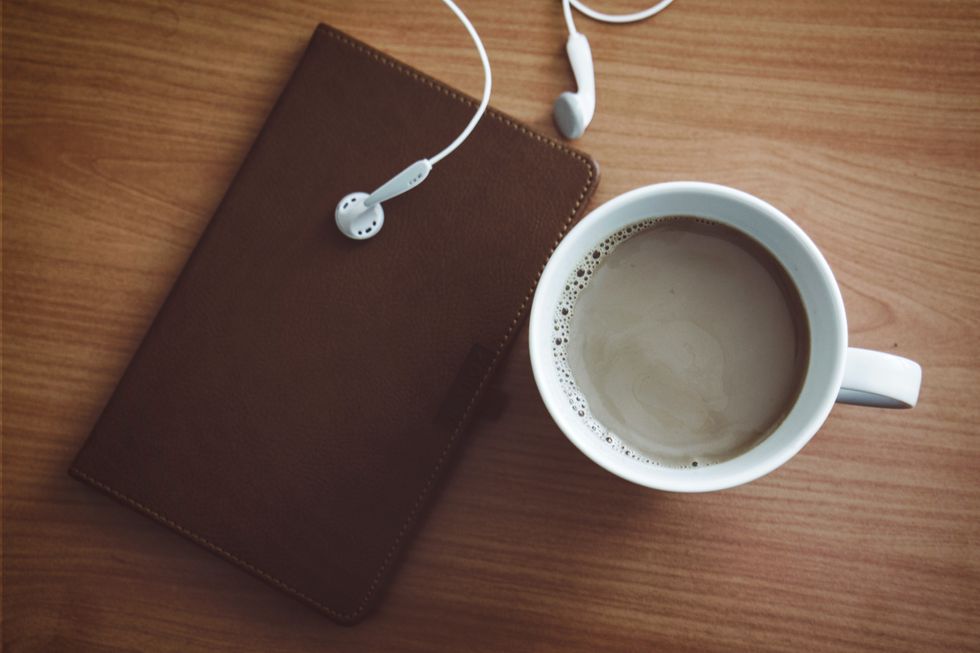Since before I can remember, I loved music. Whenever I rode in our red Toyota 4Runner, my parents would have to put in my favorite CD or turn on the radio in order to shut me up. To this day I remember the order of songs on Stadium Arcadium by the Red Hot Chili Peppers and on my father's The Essential Billy Joel disc, memorizing the number of my favorite songs ("Snow" was number 6, "Empire State of Mind" was number 7).
As I got older, my mother instructed my relatives to buy iTunes gift cards for various birthdays and holidays when they inquired what I wanted, and I sat for hours trying to calculate how many songs or albums I could buy with the $15 I had been granted. My brother always made fun of me for singing aloud to the songs I downloaded on my slim purple iPod Nano. "You're just supposed to listen," he teased, but I knew when he said that that he simply didn't experience music the same way I did.
When I listened to a song, I had to sing along. I couldn't just sit passively and listen to it; I had to give it life, had to materialize it in the car or in my room or wherever I was listening to it. I had to use it to define my experience and my being in that moment. I always did and always will listen to music that way.
With the advent of new music platforms such as Spotify, I could further personalize the way I listened to music. I could organize songs into categories such as how they made me feel, what season I was in, whom they reminded me of, how old they made me feel. I made playlists for each of those categories, as well as for each new month that passed, so that I could look back on that playlist and feel for a moment how I felt during that time in my life.
Because music has the power to do that. It has the power to absolutely transform you, to transfer you to that other stage in your life that that one chord makes you think of. When you listen—and I mean really listen—you see how every lyric applies to an aspect of your life, even in a way that the artist never intended it to and to whom the lyrics probably mean something totally different. In that way, music is the most universal yet personal experience, because people can listen to the same song and feel completely different.
My Spotify playlists are how I make music that personal experience. My playlist "Dad" is made up of all the songs my father said he liked when they came on the radio. "Sick songs" is a playlist of all the songs my high school friends and I would sing late nights in the car. "Cheer up" has all the songs that remind me the sun will always come out again.
Organizing songs in this way helped me organize my life and reflect on what was good and what was bad. Playlists act as a sort of picture album, but for feelings. I know when I listen to a certain one that the feels I felt at the time I listened to the song will instantly wash over me. Or, I will be instantly reminded of the person for whom I made the playlist. That ability to live for a moment in the past, or with a loved one, is one I will always cherish, especially as I grow older, leave home, and leave that past behind.







 StableDiffusion
StableDiffusion StableDiffusion
StableDiffusion 10. Extra BlanketsJuwenin Home 100% Cotton Knitted Throw Blanket
10. Extra BlanketsJuwenin Home 100% Cotton Knitted Throw Blanket StableDiffusion
StableDiffusion StableDiffusion
StableDiffusion File:Kishlaru familie.jpg - Wikimedia Commons
File:Kishlaru familie.jpg - Wikimedia Commons Photo by Hanna Balan on Unsplash
Photo by Hanna Balan on Unsplash StableDiffusion
StableDiffusion black blue and yellow round illustrationPhoto by
black blue and yellow round illustrationPhoto by 

 woman holding glass jar
Photo by
woman holding glass jar
Photo by 









